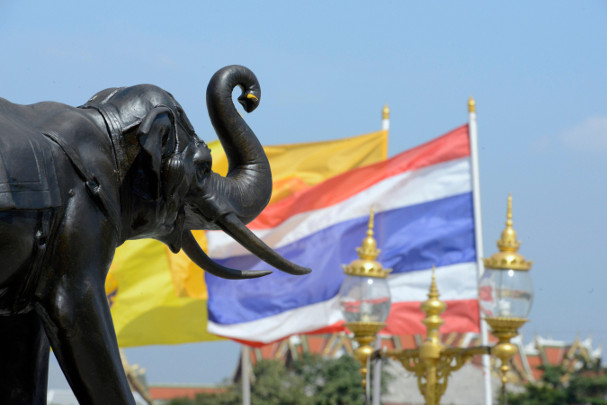
Credit: F1online digitale Bildagentur GmbH / Alamy Stock Photo
Thailand's basic science grows despite limited resources
More scientists could help sustain the country's recent growth in research output.
24 January 2017

F1online digitale Bildagentur GmbH / Alamy Stock Photo
Known for its resorts and Buddhist temples, Thailand is also a regional centre of R&D and high-tech manufacturing. It's the world's second-largest exporter of hard disk drives and a major centre for car production.
Thailand's contribution to basic science has also grown in recent years, with its researchers doubling their output in physical sciences journals in the index between 2012 and 2015. A major player is the state-backed National Science and Technology Development Agency (NSTDA). Established in 1991, it supports centres of excellence in genetic engineering, biotechnology, electronics and nanotechnology.
Thai scientists such as a chemist at Chulalongkorn University, Patchanita Thamyongkit, have been raising the profile of home-grown research. Her work on the chemistry behind solar cells that use organic compounds, known as porphyrins, helped earn her the Abdus Salam International Centre for Theoretical Physics prize in 2013; she also scooped a L'Oreal-UNESCO accolade in 2014 for women in science. “Thailand is ambitious about upgrading to world-class level,” says Thamyongkit.
However, the country suffers from a paucity of researchers and funding. It had only 13 R&D personnel per 10,000 people in 2014, according to the National Science Technology and Innovation Policy Office (STI). Only about 0.5% of Thailand's GDP is devoted to research. The government wants to increase that to 1% next year, but is relying on the private sector to contribute more than two-thirds, about US$2.5 billion.
“Thailand is focused on cultivating a new generation of young scientists by promoting a number of fields in order to support innovation in strategic sectors targeted by the government,” says Kittipong Promwong, secretary general of STI. Fields will include biotechnology, biomedical devices, robotics and the Internet of Things.”
